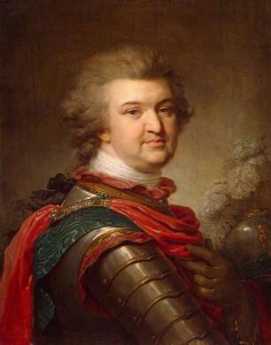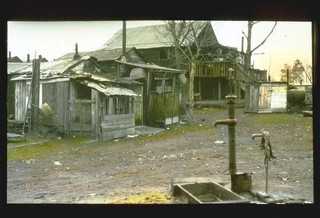Related Topics
Philadelphia Politics
Originally, politics had to do with the Proprietors, then the immigrants, then the King of England, then the establishment of the nation. Philadelphia first perfected the big-city political machine, which centers on bulk payments from utilities to the boss politician rather than small graft payments to individual office holders. More efficient that way.
Historical Preservation
The 20% federal tax credit for historic preservation is said to have been the special pet of Senator Lugar of Indiana. Much of the recent transformation of Philadelphia's downtown is attributed to this incentive.
Gardens Flowers and Horticulture
Gardening, flowers and the Flower Show are central to the social fabric of Philadelphia.
Favorites - II
More favorites. Under construction.
Chapter Six: Constitutions: What's So Good About Ours; Why Does Europe's Fail Them?1793-70
Highway Beautification

|
| Prince Grigory Potemkin |
Someone who has traveled in modern China -- and is at all observant -- knows that the extensive slums and trashy wastelands of the Inner Kingdom are systematically hidden from tourist's eyes by fences and plantings of tall trees. In a few years, the trees will grow a few feet taller and fully conceal what is behind them, but today modern tourist buses are high enough so you can see over the treetops if you look. When American tourists notice this, they are very smug.
The term Potemkin Village is a somewhat exaggerated term for the process Grigory Potemkin used to clean up the villages that his girlfriend Catherine the Great passed through on her visit to southern Russia and Crimea. He apparently did not construct whole fake villages as enemies claimed, but he was unnecessarily forceful,

|
| West Philadelphia, at one time. |
let us say, in his efforts to smarten things up. After taking a few rides on Philadelphia's suburban commuter trains, or a boat ride up to its rivers, the idea does cross most minds that we could use a Potemkin in charge of our Streets Department, or maybe a Communist Chinese on loan. We have miles, maybe even hundreds of miles, of overgrown weeds along our embankments, spiced with the discarded trash of historic duration. Since nobody wanted to live next to coal-burning locomotives, and most people even dislike the noisy though cleaner replacements, the houses along the railroad clearly deserve to be hidden. That's true in almost every town in the world (not Japan, not Switzerland) and it's deplorably true in our Philadelphia. Seaports and riverbanks are a mess everywhere, too, and we are certainly in style in that department as well. Why can't the Schuylkill look like the Seine, next to the cathedral of Notre Dame?
So the Chinese have combined the concept of cleaning up their public spaces, which we applaud, with the concept of hiding the economic truth, which we sneer at. Maybe we should give some thought to a spin campaign, the essence of which is a metropolitan crusade to pick up the trash, build some strategic fences, and plant a whole lot of tall evergreens along with the public ways. We've made a good start with Boathouse Row; why not extend it to Gray's Ferry, or even to Norristown? The idea is not a new one; Lady Bird Johnson made it her main goal in public life.
In 1965, Lyndon Johnson used his famous powers of legislative persuasion to give his wife what she wanted. The Highway Beautification Law of 1965 was passed by Congress on Lady Bird's birthday, with everyone in the gallery dressed in evening clothes. With the vote counted and enormous standing applause registered for fifteen minutes, the whole group traveled over to the White House for a signing of the law with nineteen pens. There followed the birthday party at the White House, to end all birthday parties. Highway billboards were a thing of the past.
That was forty or so years ago, and unfortunately, the billboard companies didn't like it at all. Through administrations both Democrat and Republican, the Department of Transportation has never issued regulations, so Highway Beautification was never implemented. It represents just one more unwritten aspect of the Constitution that James Madison and his friends didn't fully anticipate.
Originally published: Friday, June 23, 2006; most-recently modified: Tuesday, May 21, 2019